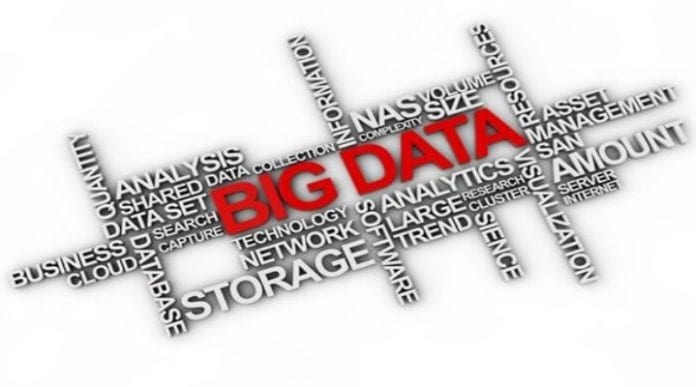Raw data is an infinite resource. It is generated every second of every day by the millions of smartphones and computers we use.
In the past, this information was difficult to harness. But now, with cloud technology and other innovations from companies like Hadoop, big data is becoming big business.
The unstructured data is now being turned into useful information to identify trends, outliers and other important pieces of information. In short, it is changing the world as we know it.
Here is five ways that is happening:
It’s big business
Your personal preferences and habits are quickly becoming the most valuable commodity there is.
Big data creates value by making information transparent, more accurate and more tailored to the customer’s needs.
With the rise of social media, multimedia and the “Internet of Things,” there is a huge emphasis on sifting through all the data to decide what drives business and what actions to take.
Big data is expected to have a significant impact on healthcare, manufacturing, retail and personal-location data, amongst other things, in the near future.
For example, according to a study by McKinsey Global Institute, “If U.S. healthcare were to use big data creatively and effectively to drive quality, the sector could create more than $300 billion in value every year.”
It makes businesses smarter
In most cases, the end goal of harnessing all this data is to improve customer experience. Instead of having to rely on gut feelings, companies can see consumer preferences in real time.
Many companies are looking to big data to push growth, innovation and consumer surplus. This allows a company to give you more personalized service and innovate products that fit your needs and lifestyle.
It also allows them to single out high priority customers and give them better service than lower priority customers. For example, if you are at a large sporting event and you have a more robust data plan than the person next to you, you will get the priority on bandwidth.
A 2011 study by the McKinsey Global Institute, predicts that a company could increase its operating margin by 60% by using big data to its full potential.
It could save your life
According to the CEO of the nonprofit Health Data Consortium, the power to collect and analyze enormous amounts of data can make anticipating and treating illnesses much more efficient.
Big data is being used in a number of ways in the healthcare field. For example, companies like 23andMe are able to map all 23 pairs of your chromosomes, which could allow you to see where you have genetic dispositions to certain ailments.
In fact, Steve Jobs was one of the early pioneers of this technology. During his cancer battle, he was one of the first people to have his entire genome sequenced with the hope it could help doctors pinpoint the best ways to attack his cancer.
With digital data records and medical apps and websites, the entirety of your medical data is available to doctors and other medical professionals. As more data is collected and analyzed, this technology will only become more effective.
Data scientist explosion
If you are looking for a career change with lots of job security, you might want to look into becoming a data scientist or at least try to persuade your son or daughter to become one.
Data scientists are becoming common in every type of company from Internet browser companies to home cleaning services.
Harvard Business Review dubbed it “the sexiest job of the 21st century.” With four million big data jobs expected by 2018 and a median salary of $150,000 dollars per year, it’s hard to argue.
The McKinsey Global Institute predicts, there will be a shortage of talent necessary to take advantage of big data. They predict a shortage of 140,000 to 190,000 workers by 2018.
So what is a data scientist? IBM describes the job as “part analyst, part artist…with a solid foundation in computer science and applications, modeling, statistics, analytics and math.”
If you are interested in becoming a data scientist, check out this info graphic by DataCamp.
It puts your privacy at risk
Privacy and security are of the utmost concern. With such immense amounts of data in so many different hands, it is hard to keep track of where it is going and how it is being used.
Often times audit trails are lacking or nonexistent. In these cases, there is sometimes no way to tell who is getting their hands on your most personal information.
There are also relatively few laws protecting your information from being sold. People are not aware when they download an app and sign off on the terms and conditions that they are signing away their right to keep their information from being sold.
Every aspect of your life can be catalogued and scrutinized, which allows someone with proper access to see where you are, what you are purchasing and who your friends are.
“Data-mining” is a way to search and correlate one type of behavior to another. With this technology, banks and other lenders can use information such as your friends and connections on social media to decide your credit worthiness.
Many worry that this data can be misleading. The Wall Street Journal gives the example that if someone purchases plus-sized clothing, they could be flagged for potential obesity.
There are many challenges ahead as data continues to grow and evolve, but one thing is certain, big data is here to stay.
For more on big data and analytics, click here. For more valuable multimedia content check out our youtube page.

